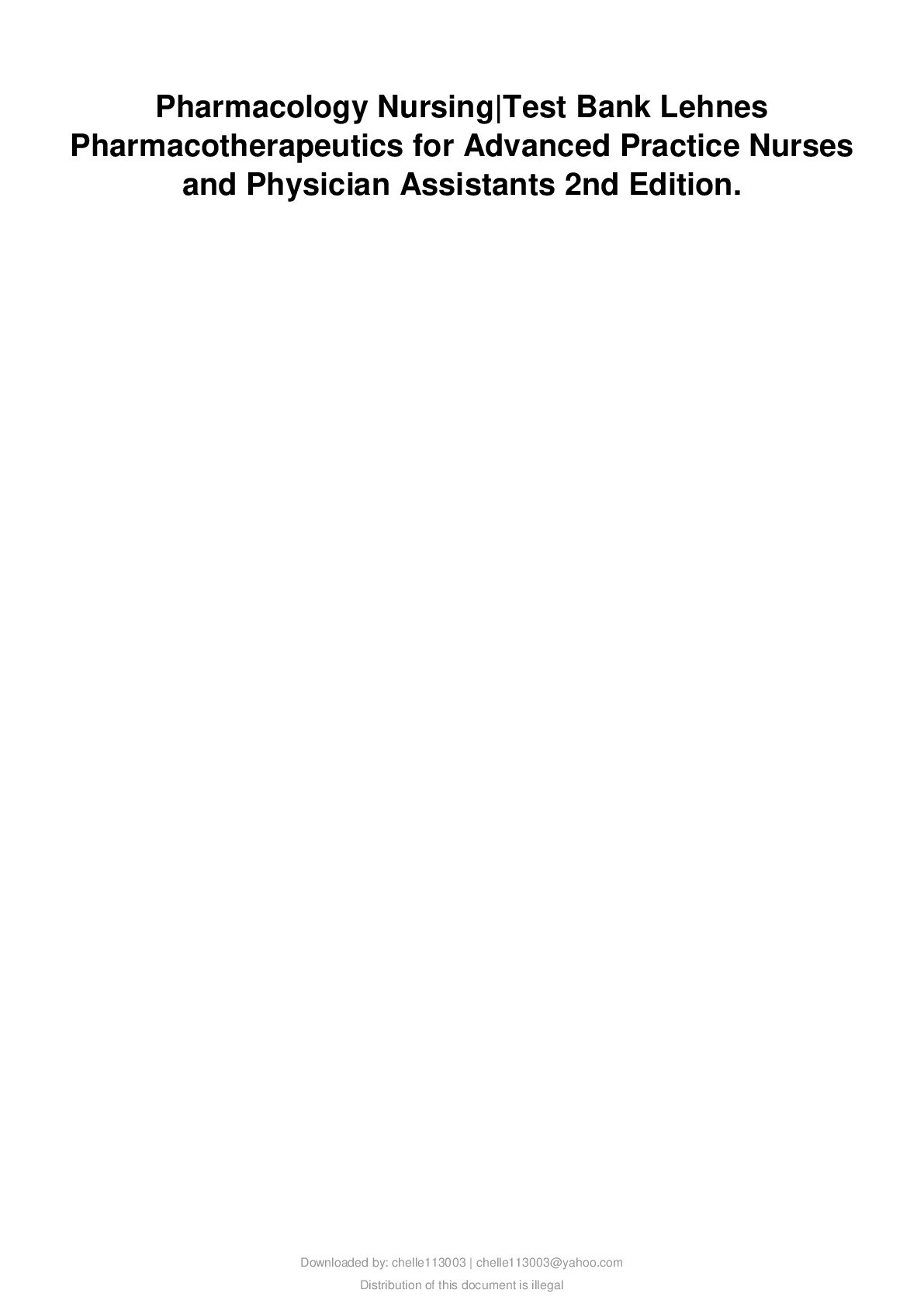All study resources > Stuvia-813835-pharmacology-nursingtest-bank-lehnes-pharmacotherapeutics-for-advanced-practice-nurses (Nursing)
Stuvia-813835-pharmacology-nursingtest-bank-lehnes-pharmacotherapeutics-for-advanced-practice-nurses
1. An APRN works in a urology clinic under the supervision of a physician who does not restrict the types of medications the APRN is allowed to prescribe. State law does not require the APRN to practice under physician supervision. How would the APRN’s prescriptive authority be described?
a. Full authority
b. Independent
c. Without limitation
d. Limited authority
2. Which factors increase
...[Show More]
1. An APRN works in a urology clinic under the supervision of a physician who does not restrict the types of medications the APRN is allowed to prescribe. State law does not require the APRN to practice under physician supervision. How would the APRN’s prescriptive authority be described?
a. Full authority
b. Independent
c. Without limitation
d. Limited authority
2. Which factors increase the need for APRNs to have full prescriptive authority?
a. More patients will have access to health care.
b. Enrollment in medical schools is predicted to decrease.
c. Physician’s assistants are being utilized less often.
d. APRN education is more complex than education for physicians.
3. Which factors could be attributed to limited prescriptive authority for APRNs? Select all that apply.
a. Inaccessibility of patient care
b. Higher health care costs
c. Higher quality medical treatment
d. Improved collaborative care
e. Enhanced health literacy
4. Which aspects support the APRN’s provision for full prescriptive authority? Select all that apply.
a. Clinical education includes prescription of medications and disease processes.
b. Federal regulations support the provision of full authority for APRNs.
c. National examinations provide validation of the APRN’s ability to provide safecare.
d. Licensure ensures compliance with health care and safety standards.
e. Limiting provision can decrease health care affordability.
5. Which aspects support the APRN’s provision for full prescriptive authority? Select all that apply.
a. Clinical education includes prescription of medications and disease processes.
b. Federal regulations support the provision of full authority for APRNs.
c. National examinations provide validation of the APRN’s ability to provide safecare.
d. Licensure ensures compliance with health care and safety standards.
6. A family nurse practitioner practicing in Maine is hired at a practice across state lines in Virginia. Which aspect of practice may change for the APRN?
a. The APRN will have less prescriptive authority in the new position.
b. The APRN will have more prescriptive authority in the new position.
c. The APRN will have equal prescriptive authority in the newposition.
d. The APRN’s authority will depend on federalregulations.
7. How can collaboration with a pharmacist improve positive outcomes for patients? Select all that apply.
a. Pharmacists can suggest foods that will help with the patient’s condition.
b. Pharmacists have additional information on drug interactions.
c. The pharmacist can suggest adequate medication dosing.
d. Pharmacists have firsthand knowledge of the facility formulary.
e. Pharmacy can alter prescriptions when necessary to prevent patient harm.
[Show Less]
